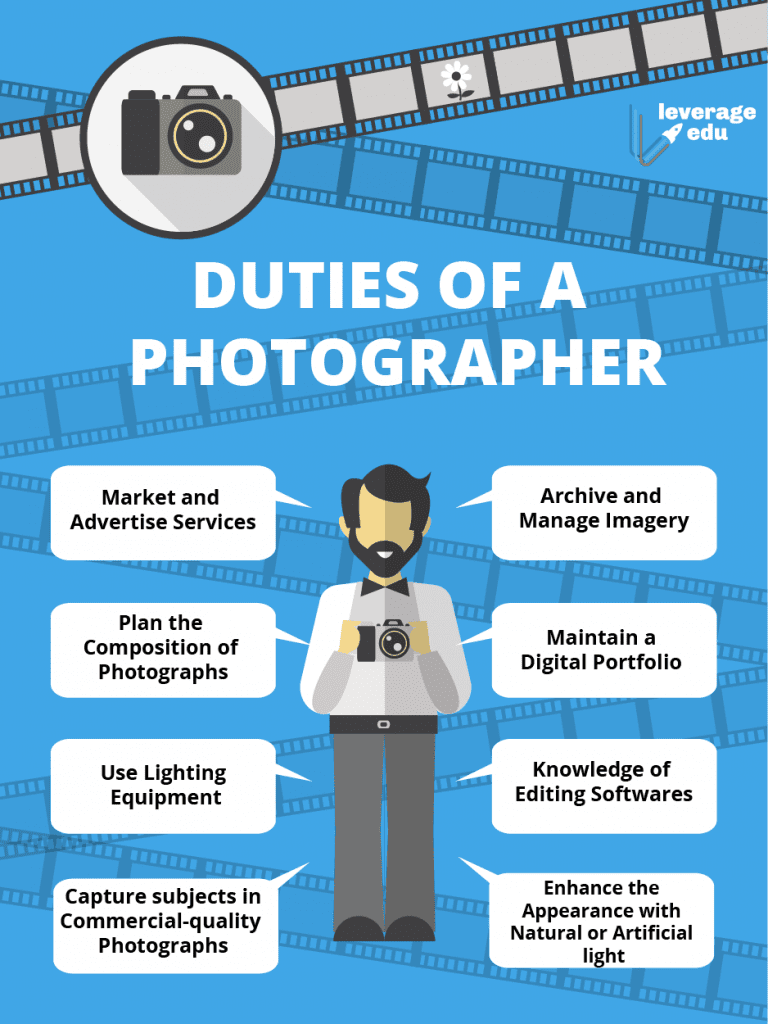If you’ve ever dreamed of turning your passion for photography into a fulfilling career, then exploring the possibilities in the USA may be the perfect avenue for you. With its diverse landscapes, vibrant cities, and rich cultural tapestry, the United States offers a plethora of opportunities for aspiring photographers. Whether you aspire to capture breathtaking landscapes, document compelling human stories, or create art through a lens, a career in photography in the USA can provide you with the platform to showcase your creativity and make a lasting impact. Whether you’re a student considering your options or a budding photographer seeking new horizons, this article will provide you with a career overview to help you navigate the exciting world of photography in the USA.

This image is property of leverageedublog.s3.ap-south-1.amazonaws.com.
1. Introduction
Welcome to the world of photography! If you have a passion for capturing moments, telling stories through images, and creating visual masterpieces, then a career in photography might be the perfect fit for you. In this article, we will explore the exciting opportunities and rewarding experiences that await you in the field of photography in the USA. From education and training to building a portfolio, developing business skills, finding work opportunities, and more, we will guide you through the steps to help you succeed in this dynamic industry. So grab your camera and let’s dive in!
2. Education and Training
Becoming a professional photographer doesn’t necessarily require a formal education, but it can greatly enhance your skills and knowledge in the field. In the USA, there are various options available for education and training in photography.
2.1 Photography Degree Programs
One path to consider is pursuing a photography degree program. Many universities and art schools offer comprehensive programs that cover both the technical and artistic aspects of photography. These programs often include courses in composition, lighting techniques, digital editing, and more. A degree in photography can provide you with a solid foundation and a deeper understanding of the craft.
2.2 Technical Training
In addition to degree programs, there are also technical training schools and vocational programs that focus specifically on photography. These programs typically offer hands-on training in various areas of photography such as studio lighting, photojournalism, and image editing. Technical training can help you develop specialized skills and techniques that are essential in the field.
2.3 Continuing Education and Workshops
Even after completing a degree or technical training program, it’s important to continue learning and expanding your photography skills. Many organizations and professional photographers offer workshops and seminars where you can learn new techniques, gain insights from industry experts, and network with fellow photographers. Continuing education allows you to stay up-to-date with the latest trends and advancements in the field.

This image is property of static.wixstatic.com.
3. Specializations in Photography
Photography is a diverse field with numerous specializations to choose from. Depending on your interests and strengths, you can focus on a particular genre of photography to build your career.
3.1 Portrait Photography
Portrait photography is all about capturing the essence and personality of individuals. Whether it’s traditional studio portraits, environmental portraits, or lifestyle portraits, this specialization allows you to work closely with people and create meaningful connections through your photographs.
3.2 Wedding Photography
Wedding photography is a popular and highly sought-after specialization. As a wedding photographer, you will document one of the most important days in a couple’s life. From capturing the emotions of the ceremony to the joyous moments at the reception, wedding photography requires not only technical skills but also the ability to work under pressure and beautifully capture fleeting moments.
3.3 Fashion Photography
Fashion photography focuses on showcasing clothing, accessories, and models in a visually captivating way. It requires creativity and an understanding of current fashion trends. Fashion photographers often work closely with stylists, makeup artists, and designers to create stunning images for magazines, advertisements, and e-commerce platforms.
3.4 Wildlife Photography
For those who love nature and wildlife, wildlife photography offers a thrilling and rewarding career path. From capturing majestic landscapes to photographing exotic animals in their natural habitats, wildlife photographers need patience, perseverance, and an eye for capturing unique moments in nature.
3.5 Landscape Photography
Landscape photography allows you to capture the beauty of the natural world. From breathtaking sunsets to rugged mountains, landscape photographers strive to evoke emotions and transport viewers to stunning locations through their images. This specialization requires an understanding of composition, lighting, and the ability to scout for picturesque locations.
4. Photography Equipment and Tools
To excel in the field of photography, it’s important to have the right equipment and tools to capture and enhance your images. Here are some essential items that every photographer should consider.
4.1 Cameras and Lenses
Investing in a quality camera and lenses is crucial for professional photography. DSLR and mirrorless cameras are popular choices among photographers due to their versatility and image quality. Different lenses offer unique capabilities, such as wide-angle lenses for landscapes and telephoto lenses for sports and wildlife photography. Researching and selecting the right equipment for your chosen specialization is essential.
4.2 Lighting Equipment
Lighting equipment plays a significant role in photography, especially in studio or controlled lighting environments. From strobe lights to softboxes, reflectors, and diffusers, there are various tools available to shape and control light. Understanding the principles of lighting and how to utilize light effectively can greatly enhance your photographs.
4.3 Editing Software and Computers
In today’s digital age, post-processing has become an integral part of photography. Having access to reliable editing software, such as Adobe Photoshop or Lightroom, and a capable computer is essential for refining and enhancing your images. Editing allows you to adjust exposure, color balance, and other elements to create visually stunning photographs.
4.4 Tripods and Accessories
Tripods provide stability and allow you to capture sharp images even in low-light situations or long-exposure shots. Other accessories, such as filters, remote shutter releases, and memory cards, can also enhance your photography experience by expanding your creative possibilities and ensuring you have the necessary tools on hand.

This image is property of www.nyip.edu.
5. Building a Portfolio and Gaining Experience
Once you have developed your photography skills and acquired the necessary equipment, it’s time to start building your portfolio and gaining real-world experience. Here are a few strategies to consider.
5.1 Starting with Personal Projects
Embarking on personal photography projects is a great way to showcase your unique vision and style. By focusing on subjects that interest you, you can create a portfolio that reflects your passion and creativity. Personal projects also allow you to experiment with different techniques and develop a cohesive body of work.
5.2 Assisting Professional Photographers
Another way to gain experience is by assisting established professional photographers. This can provide you with valuable insights into the industry, practical knowledge, and networking opportunities. Assisting a professional photographer allows you to observe their workflows, learn how they interact with clients, and understand the business aspects of photography.
5.3 Internships and Apprenticeships
Internships and apprenticeships offer hands-on experience in a real photography setting. They provide the opportunity to work with experienced professionals, learn from their expertise, and contribute to various projects. Many photography studios, magazines, and media organizations offer internship programs, which can be a stepping stone towards a successful career in photography.
6. Developing Business and Marketing Skills
Being a successful photographer goes beyond capturing beautiful images. It also requires developing strong business and marketing skills to establish and grow your career. Here are some key areas to focus on.
6.1 Understanding the Business Side
Understanding the business side of photography is essential for long-term success. This includes aspects such as contracts, client relations, budgeting, and managing your finances. Taking the time to educate yourself on these topics will help you navigate the challenges of running a photography business.
6.2 Pricing and Contracts
Determining the right pricing for your photography services can be challenging, but it’s crucial to ensure you are appropriately compensated for your time and talent. Creating clear and concise contracts that outline the terms and expectations for both you and your clients is also essential in protecting your work and rights.
6.3 Networking and Social Media
Networking is an important aspect of building your photography career. Attend industry events, join photography groups, and actively engage with other photographers and potential clients. Additionally, leveraging social media platforms such as Instagram, Facebook, and LinkedIn can help you showcase your work, connect with a wider audience, and attract potential clients.
6.4 Marketing and Self-Promotion
Marketing yourself and your photography services is crucial in a competitive industry. Creating a professional website or portfolio, utilizing search engine optimization techniques, and implementing targeted marketing strategies can help you stand out from the crowd. Collaborating with other professionals, participating in exhibitions, or offering limited-time promotions can also increase your visibility and attract new clients.

This image is property of dvyvvujm9h0uq.cloudfront.net.
7. Finding Work Opportunities
Once you have developed your skills, built a portfolio, and established your business and marketing strategies, it’s time to find work opportunities in the photography industry. Here are some avenues to consider.
7.1 Freelancing and Self-Employment
Many photographers choose to work as freelancers and be self-employed. This offers flexibility and the ability to take on a variety of projects across different specializations. As a freelancer, you can build your client base, set your own rates, and create a schedule that suits your lifestyle.
7.2 Working for Photography Studios
Photography studios offer job stability and the opportunity to work alongside other professionals. Studios may specialize in wedding photography, portraits, commercial work, or various other genres. Working for a studio allows you to collaborate with a team, gain experience in different areas, and benefit from the studio’s reputation and client base.
7.3 Event and Commercial Photography
Event photography involves capturing important moments at weddings, corporate functions, and other special events. Commercial photography includes working with businesses and brands to create promotional images that showcase their products or services. Both avenues offer a wide range of opportunities and the chance to work with diverse clients.
7.4 Journalism and Editorial Photography
Journalism and editorial photography involve capturing images that accompany news articles, feature stories, and magazine spreads. These fields require the ability to tell a story through images and often involve working in fast-paced and unpredictable environments. Networking with journalists, editors, and media organizations can help you gain access to these exciting opportunities.
8. Joining Photography Associations and Organizations
Joining photography associations and organizations can provide numerous benefits and opportunities for professional development and networking.
8.1 Benefits of Membership
Membership in photography associations and organizations often includes access to resources, educational materials, job postings, and networking events. These benefits can help you stay informed about industry trends, connect with like-minded individuals, and access exclusive job opportunities.
8.2 Professional Development and Networking
Photography associations and organizations often offer workshops, conferences, and seminars to help members enhance their skills and knowledge. These events provide opportunities to learn from industry experts, exchange ideas with peers, and stay updated on the latest techniques and technologies in photography.
8.3 Industry Recognition
Being a member of prestigious photography associations and organizations can enhance your credibility and reputation in the industry. Some associations offer certifications and awards that recognize excellence in various aspects of photography, further validating your expertise and distinguishing you from other professionals.

This image is property of www.thewanderinglens.com.
9. Considerations for International Students
If you are an international student considering a career in photography in the USA, there are a few additional considerations to keep in mind.
9.1 Visa and Work Permit Requirements
To pursue a career in photography in the USA as an international student, you will need to obtain the appropriate visa and work permit. Understanding the specific requirements and regulations is crucial to ensure legal compliance and to maximize your opportunities.
9.2 Finding Sponsorship or Employment
Securing sponsorship or employment from a US-based photography company can be challenging for international students. Researching potential employers, networking with industry professionals, and actively seeking out opportunities can increase your chances of finding sponsorship or employment.
9.3 Cultural and Language Challenges
Adapting to a new country and culture can present some challenges. Language proficiency, cultural awareness, and understanding local customs are important factors that can contribute to your success as an international student in the photography industry.
11. Conclusion
Embarking on a career in photography in the USA offers endless possibilities for creative expression, personal growth, and professional success. By pursuing education and training, specializing in a particular genre, mastering the essential tools and equipment, building a portfolio, developing business and marketing skills, finding work opportunities, and joining associations and organizations, you can pave the way towards a fulfilling and rewarding career in this dynamic field. So get out there, explore, and capture the world through your lens. Your photography journey starts now!